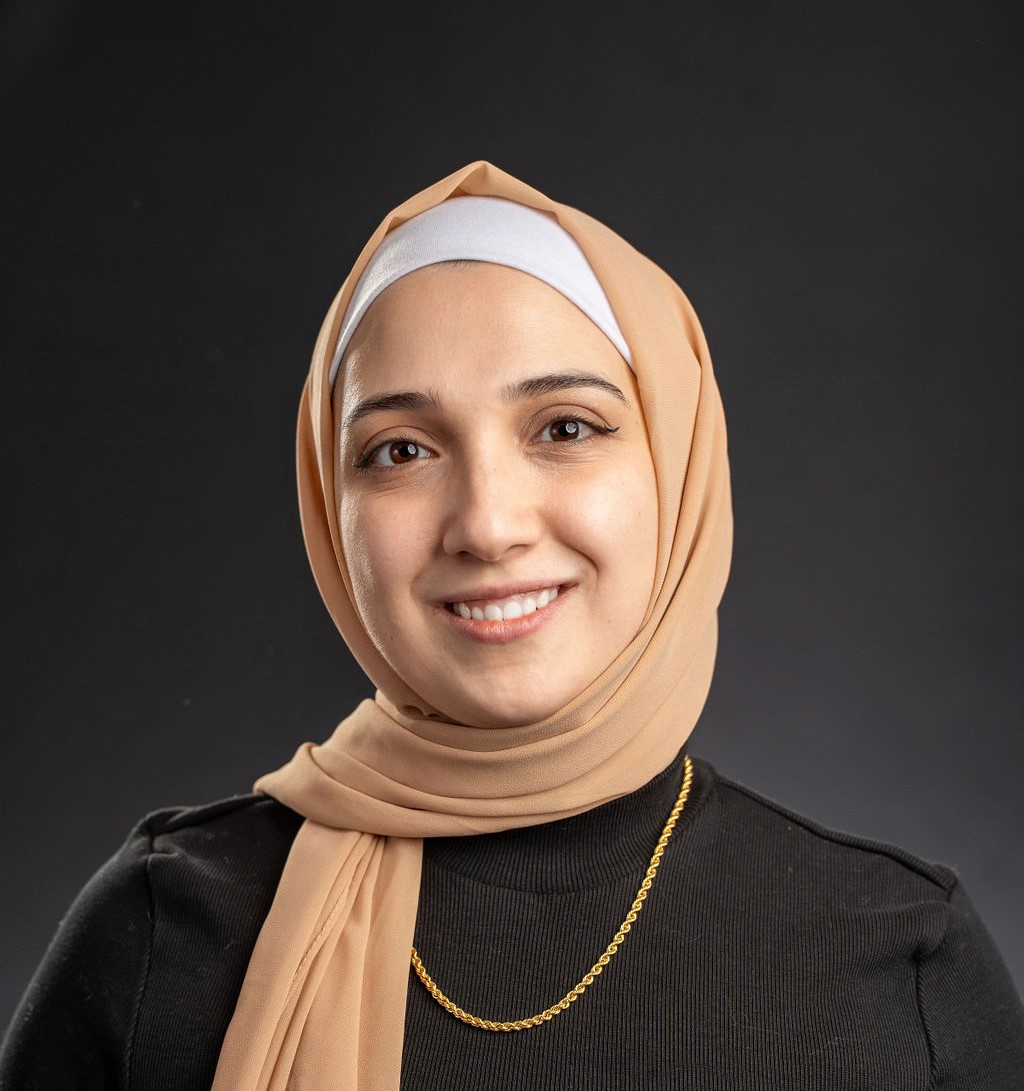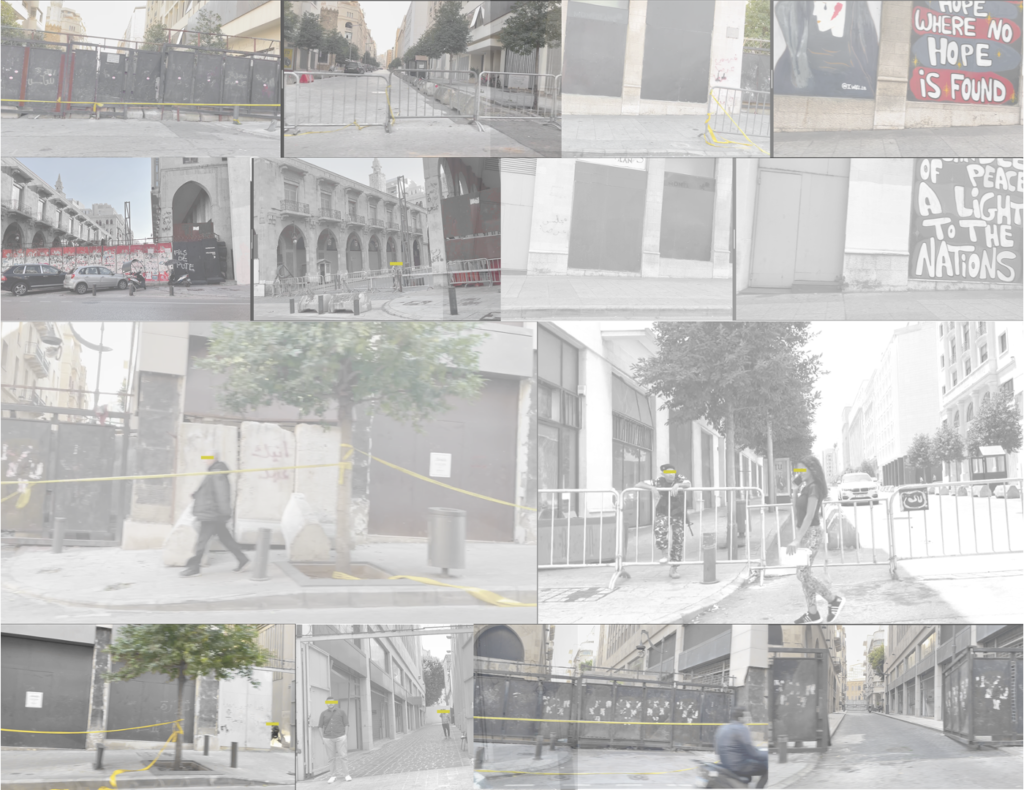2024 PhD in Architecture: Jenan Ghazal
December 9, 2024
The PhD in Architecture program at the Azrieli School of Architecture & Urbanism is pleased to announce that Jenan Ghazal has successfully defended her dissertation focused on Beirut, Lebanon.
Ghazal defended the dissertation, Walking in the “Meanwhile”: Fieldnotes on spatial violence in Beirut, on Nov. 27.
She is the third candidate to complete the program in 2024. Dr. Émélie Desrochers-Turgeon and Dr. Rana Abughannam also defended their dissertations in 2024 and have graduated.

Ghazal earned a post-professional Master of Architectural Studies from Carleton University in 2016. She holds a BArch (2012) and an M.Arch (2014) from the Académie des Beaux-Arts in Lebanon, where she also has professional experience as a licensed architect.
Before studying at Carleton, Ghazal was involved with community-based activism and documentation of endangered heritage buildings in her hometown of Tripoli, Lebanon.
Based in Toronto, she is a sessional lecturer and has taught at OCAD University and Carleton University.
EXAMINATION BOARD
Internal Examiner: Dr. Monica Patterson
Associate Professor at the Institute of Interdisciplinary Studies, and Assistant Director of Curatorial Studies at the Institute for the Comparative Study of Literature, Art, and Culture at Carleton University.
External Examiner: Dr. Aliki Economides
Associate Professor, McEwen School of Architecture, Laurentian University
PHD ADVISORY COMMITTEE
Supervisor: Dr. Ozayr Saloojee, Professor, Azrieli School of Architecture & Urbanism, Carleton University
Advisor: Dr. Jens Hanssen, Associate Professor of Arab Civilization, Middle Eastern and Mediterranean history, University of Toronto
Advisor: Dr. Claudio Sgarbi, Adjunct Research Professor, Azrieli School of Architecture & Urbanism, Carleton University
–
Abstract
Walking in the “Meanwhile”: Fieldnotes on spatial violence in Beirut
This dissertation is an investigation of spatial violence in Beirut through a critical walking practice grounded in a feminist ethnographic approach as a methodology of learning. It focuses on key architectural and civic spaces in the city, including its walls of shame, bitter towers, and urban squares. As a scholarly project, this research is located in the “meanwhile,” a deliberate spatial and temporal uncertainty maintained by the stateless state (sulta) and its various corporate alliances with companies like Solidere.

Between 2018 and 2023, my practice of walking, along with photographic fieldwork, critical mapping, and oral history, captured what I call “the spaces of the void,” which emerged as a result of the sulta’s particular forms of urban and political control: its manufacturing of spatial violence. This violence exists behind Beirut’s wall of shame (2015 and 2019), around the tower of bitterness (1975 – onwards), and inside the squares of the city – what should be, today, vibrant public spaces.
Living in the “meanwhile,” the spaces of the void enable both the recollection of past violence and the anticipation of future violence. On 17 October 2019, this “meanwhile” was abruptly interrupted by a historical popular uprising (the thawra), and people reclaimed (and filled) the spaces of the void in their cities, demanding the downfall of the sulta. Despite the sulta’s extensive securitization of the city in response to large-scale protests, the organic urban planning practice of protestors in the streets (re)creating their public space – arrested the decades-long production of the spaces of the void.
The research shows a reconceptualization of a network of spatial violence (Part II) into spaces of the thawra (Part III). Consequently, this dissertation begins with an investigation of spatial violence and concludes with a participatory practice of architecture – in partnership with marginalized communities – rooted in spatial justice. In doing so, and despite contributing to a growing body of urban geopolitics and security studies, the research further poses the question of spatial violence, not as pertaining entirely to theories of violence and space, but to the practice of architecture in its pursuit of spatial justice.
–
About the PhD in Architecture
The PhD in Architecture program at the Azrieli School of Architecture & Urbanism is an innovative, comprehensive doctoral program that fuses research with critical practice in architecture through the combined exploration of a dissertation and an epistemic object, which is uniquely defined in relation to the research.
The program’s exceptionally talented and thoughtful students undertake original, speculative, and experimental research. Doctoral projects draw on the interrelated reflective aspects of architecture, design, and material processes. The PhD students explore a range of media that support their investigations, including film, drawing, modeling, and mapping.
The PhD rigorously prepares graduates for academic and professional fields.
The PhD Program in Architecture helps form reflective practitioners and critical thinkers who will contribute to both practice and academia, challenging current and dominant understandings of architecture practice and pedagogy and contributing to the renewal of architectural knowledge.